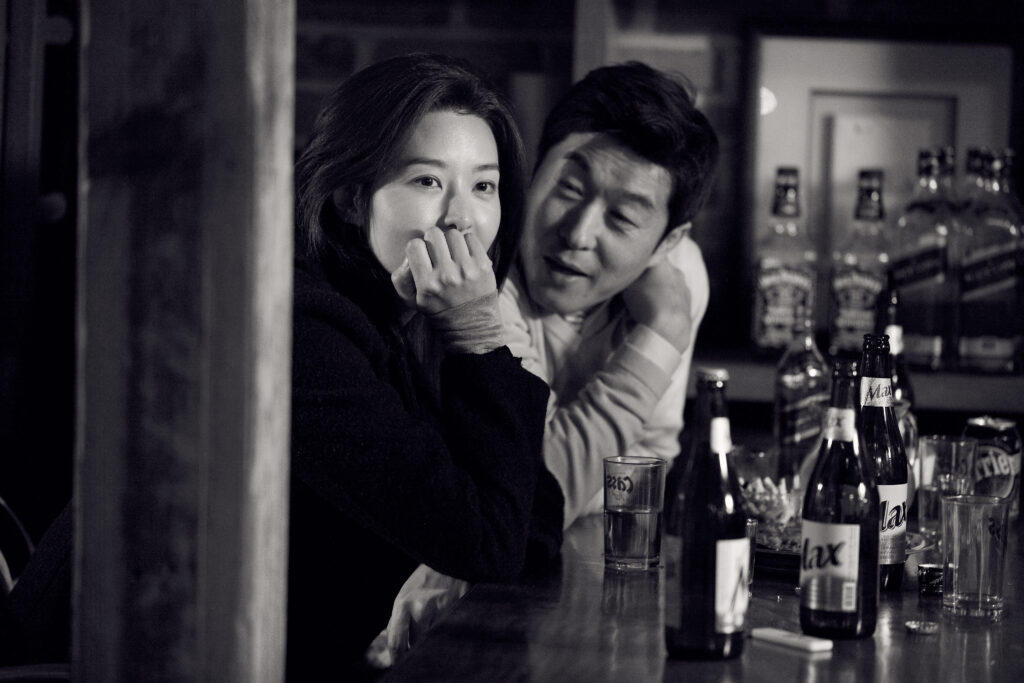At the Table of Hong Sang-soo

Written by Diane Killough, AFS Creative Careers Intern
Across Hong Sang-Soo’s body of work, tables serve as a focal point for interactions between his characters. For the average Hong Sang-soo protagonist, life is typically complicated, frequently made messier by their own actions. Days are often filled with fumbled social encounters and misunderstandings, and an underlying ennui is always subtly present. Only at the table are we able to see these people break free from the chaos of everyday life and recenter themselves.
Often, Hong Sang-soo’s protagonists use their time at the table to voice their true thoughts and doubts about their lives to others, unrestrained by the forced niceties of the outside world. To Hong Sang-soo, the table represents a place to be vulnerable with the people around you, and he uses this to emphasize the importance of social bonds, outside of just the romantic or sexual.

In THE DAY HE ARRIVES (screening July 23 and 28), this is particularly central to the narrative. The film’s protagonist, Seong-jun, is shown to be caught in a cycle, constantly meeting friends and acquaintances at various bars or cafés, only truly connecting with others while sharing a drink or a meal. The interactions Seong-jun has away from the table are usually forced and overly polite, but sharing a meal with others acts as a mechanism where he can drop all pretense and truly connect with those around him. These scenes tend to be reflective and wordy, and they are the only times Seong-jun seems to be able to honestly assess himself and his life.

Likewise, in NIGHT AND DAY, the film’s protagonist, Kim Sung-nam, only seems to have honest, uncomfortable conversations over food. Kim is a mess and a very poor communicator. Hong Sang-soo uses the table to break down his characters’ social walls and push them into hard conversations they had been otherwise avoiding.
Contrary to the communal power of the table, traditional intimacy (i.e. physical and emotional) is shown more often to isolate and complicate these protagonist’s lives and typically weighs heavy on their psyches. This irony is present across Hong Sang-soo’s work and functions as a commentary on what “real intimacy” looks like to people who struggle to make meaningful connections. Time and time again, physical intimacy and its aftermath are seen to drive a wedge between people, whereas the communal power of the table allows people to easily connect and share their experiences.

Ultimately, Hong Sang-soo uses the act of communing at the table as an opportunity to put his characters under examination before our eyes, masterfully navigating the intricacies of social interaction and day-to-day life and putting those dynamics under the spotlight.
You can see these films and more at AFS Cinema throughout the month of July in our Essential Cinema series A Little Early/A Little Late: The Cinema of Hong Sang-soo.








